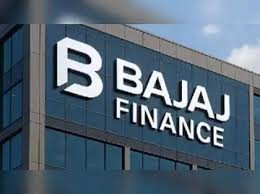SEBI Opens Settlement Window for Brokers Facing Action in Algo Trading Cases
IIE DIGITAL DESK : The significant move aimed at resolving long-pending enforcement matters, the Securities and Exchange Board of India (SEBI) has offered a settlement mechanism to brokers who are facing regulatory action for violations related to algorithmic (algo) trading practices. This initiative is part of SEBI's broader effort to streamline compliance, reduce litigation, and ensure market discipline through timely redressal.
According to sources familiar with the development, SEBI has sent out communication to several brokers—many of whom had been issued show-cause notices for unauthorized or unregulated use of algo trading systems. These brokers can now opt for a settlement by paying a penalty, thereby avoiding a prolonged legal process and potential harsher punitive measures such as suspension or cancellation of licenses.
The move follows a series of investigations conducted by SEBI in recent years, which revealed that certain brokers had deployed automated trading strategies on client accounts without proper disclosures or necessary approvals. In some cases, the algorithms used by brokers provided an unfair advantage to select clients by enabling ultra-fast order execution—raising concerns about market fairness and investor protection.
Under SEBI’s settlement scheme, eligible brokers will be allowed to submit an application detailing their willingness to pay monetary penalties, along with a commitment to improve internal systems and compliance frameworks. SEBI will then assess the gravity of the violation, the broker’s past track record, and the remedial actions taken before arriving at a final settlement order.
Legal experts say the move represents a balanced regulatory approach. “SEBI is acknowledging that while enforcement is necessary, it must also provide a fair chance for entities to correct their mistakes and move forward. This reduces regulatory uncertainty and ensures better compliance in the long run,” said Anirudh Khanna, a corporate law expert and partner at a Mumbai-based legal firm.
Market participants welcomed the announcement, particularly mid-sized brokers who had argued that the complex and evolving nature of algo trading regulations had made compliance difficult in the early stages. Some of them maintained that the violations were unintentional and occurred during the initial phase of algorithmic adoption in the Indian market.
“Algo trading is a technical domain, and there was a time when guidelines weren’t fully clear. We appreciate SEBI’s decision to offer a corrective rather than a punitive path,” said a spokesperson for a leading brokerage firm that is expected to apply for settlement.
The settlement initiative is being seen as an extension of SEBI’s broader agenda of modernizing market infrastructure while keeping systemic risks in check. In recent years, SEBI has tightened norms around algorithmic trading, mandating that all strategies be approved by stock exchanges, ensuring real-time monitoring, and requiring brokers to maintain robust audit trails.
SEBI has also recognized the increasing role of technology in the markets and has tried to strike a balance between innovation and regulation. “The idea is to promote healthy use of technology while preventing misuse. Settlement allows us to close legacy cases and focus on more serious, ongoing issues,” a senior SEBI official said on condition of anonymity.
The window for settlement will remain open for a limited period, after which enforcement proceedings will resume against those who choose not to settle. Industry sources believe a large number of brokers are likely to take advantage of the opportunity to resolve issues swiftly.
As algo trading continues to grow in popularity among retail and institutional investors alike, this move from SEBI is being viewed as a pragmatic step—encouraging responsible innovation while upholding market integrity.
You might also like!
















